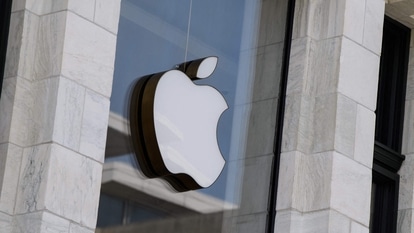Europe bets on China’s ‘Unhackable’ tech to win space race
Chinese scientists have developed what they say is an “unhackable” form of global satellite communications that draws upon quantum physics to encrypt signals, and launched a satellite in 2016 to test the nascent technology.

Europe's space industry will try to match Chinese advances in secure communications to gain an edge over satellite broadband networks including British-backed OneWeb, France's most senior space official said.
Chinese scientists have developed what they say is an “unhackable” form of global satellite communications that draws upon quantum physics to encrypt signals, and launched a satellite in 2016 to test the nascent technology.
European space officials say similar systems could be used to secure a planned low-earth orbit satellite network, and give it a capability lacked by competing space constellations such as Elon Musk's Starlink and OneWeb, which was rescued from bankruptcy last year by Britain's government and Indian billionaire Sunil Mittal.
“Evidently we must look at technologies that are different from those used by constellations being sent into orbit and which were conceived about a decade ago,” the head of France's CNES space agency, Jean-Yves Le Gall, said in an online press conference on Tuesday.
Also read: Jack Ma's disappearing act fuels speculation about billionaire's whereabouts
Europe Wants Its Own Alternative to Musk's Starlink Network
Low-earth orbit networks offer much faster internet connections than conventional space communications operated from geostationary satellites in more distant orbits. However, the route to profitability is unclear as the ground-based terminals are complex and costly.
Le Gall said European governments are keen to gain a foothold in quantum technology to ensure the secure communications over the planned network, which would arrive relatively late in the game. Starlink is already being tested with potential customers and OneWeb aims to be offering global broadband services within 18 months.
Airbus Role
The project spearheaded by EU Internal Market Commissioner Thierry Breton would aim to give Europe a homegrown capability in low-earth orbit just as its Galileo geo-positioning system rivals the U.S. military's GPS.
Aerospace giant Airbus SE would lead a consortium to build the network alongside Thales Alenia Space, Germany's OHB SE, satellite operators Eutelsat Communications SA and SES SA and space companies Telespazio and Arianespace, under the plans reported by newspaper Les Echos last month. It said the new constellation would cost an estimated 6 billion euros ($7.4 billion)
Breton will give further details on the project at a conference next week, said Le Gall.
The U.K. committed $500 million to the OneWeb rescue partly as a way to boost its global communication capabilities after Brexit cut it out of the development of Galileo's most secure military-level signals.
Le Gall said the EU is ready to begin talks to evaluate what level of access Britain could still be granted to Galileo as a partner state, like Norway or the U.S.
“For now it's premature to say how it will end. Clearly today the U.K. is out of the EU. So it's out of Galileo permanently and now it wants to return, but it would do so as an associate state, because it's not a member state,” Le Gall said.
-By Helene Fouquet.
Catch all the Latest Tech News, Mobile News, Laptop News, Gaming news, Wearables News , How To News, also keep up with us on Whatsapp channel,Twitter, Facebook, Google News, and Instagram. For our latest videos, subscribe to our YouTube channel.

























